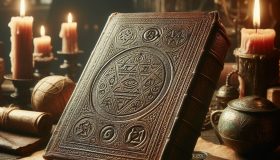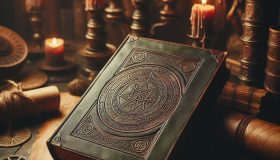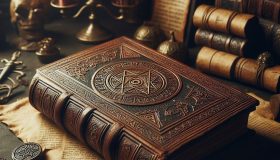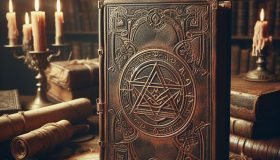
The Lesser Key of Solomon, also known as Clavicula Salomonis Regis or Lemegeton, is a notorious occult text shrouded in mystery and controversy. This ancient grimoire is divided into five books, each containing various rituals, invocations, and sigils purportedly used to summon and control demonic entities. Its origins date back to the 17th century, and its influence has endured through the centuries, captivating the imagination of occultists, scholars, and enthusiasts alike.
The Forbidden Knowledge
The Lesser Key of Solomon is considered forbidden for several reasons. Firstly, its content delves into the summoning and evocation of demons, spirits, and other supernatural entities, which goes against religious and moral norms in many cultures. The rituals outlined in the grimoire are believed to grant practitioners power and control over these beings, but at a great cost, as they are often depicted as malevolent and dangerous.
Origins and History
The origins of the Lesser Key of Solomon are shrouded in mystery, with some attributing its creation to King Solomon himself, while others believe it to be the work of medieval occultists and scholars. The grimoire gained prominence during the Renaissance period and was widely circulated among practitioners of ceremonial magic and esoteric traditions. Despite attempts to suppress its dissemination, the Lesser Key of Solomon continued to spread, fueling curiosity and fascination with the occult.
The Books of the Lesser Key
The grimoire is divided into five distinct books, each offering unique insights into the practice of demonology and ceremonial magic:
- Ars Goetia (The Lesser Key of Solomon): This book contains descriptions of 72 demons, along with instructions on how to summon and control them. Each demon is said to possess specific powers and attributes, making them formidable entities to contend with.
- Ars Theurgia Goetia (The Book of Spirits): This section focuses on the evocation of spirits and celestial beings, offering rituals for summoning angels, archangels, and other divine entities. It explores the intersection between angelic and demonic magic, seeking to harness the powers of both realms.
- Ars Paulina (The Art of Paul): This book deals with the astrological aspects of magic, detailing rituals for invoking planetary spirits and celestial intelligences. It emphasizes the importance of planetary correspondences and the timing of rituals for achieving desired outcomes.
- Ars Almadel (The Art of the Almadel): The fourth book describes the construction and use of the Almadel, a wax tablet used for communicating with angels and spirits. It provides instructions for creating the Almadel and performing rituals to invoke spiritual entities for guidance and assistance.
- Ars Notoria (The Notary Art of Solomon): The final book focuses on the attainment of knowledge and wisdom through prayer and meditation. It contains a series of prayers, invocations, and orations designed to enhance memory, learning, and spiritual enlightenment.
Forbidden Knowledge or Misunderstood Wisdom?
The Lesser Key of Solomon continues to fascinate and intrigue seekers of esoteric knowledge, but its controversial nature has also led to condemnation and censorship. Critics argue that the grimoire promotes dangerous practices and opens practitioners to spiritual and psychological harm. However, others view it as a repository of ancient wisdom and symbolism, offering insights into the human psyche and the nature of reality.
In conclusion, the Lesser Key of Solomon remains a controversial and enigmatic text, provoking debate and speculation among scholars, occultists, and enthusiasts. Whether seen as a forbidden book of dark magic or a misunderstood repository of esoteric wisdom, its influence endures, inviting brave souls to explore the hidden mysteries of the occult realm.




